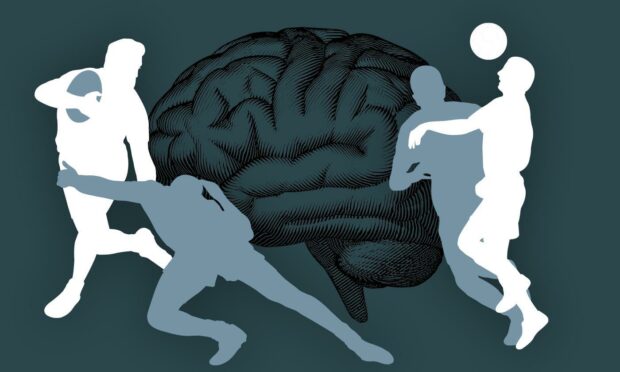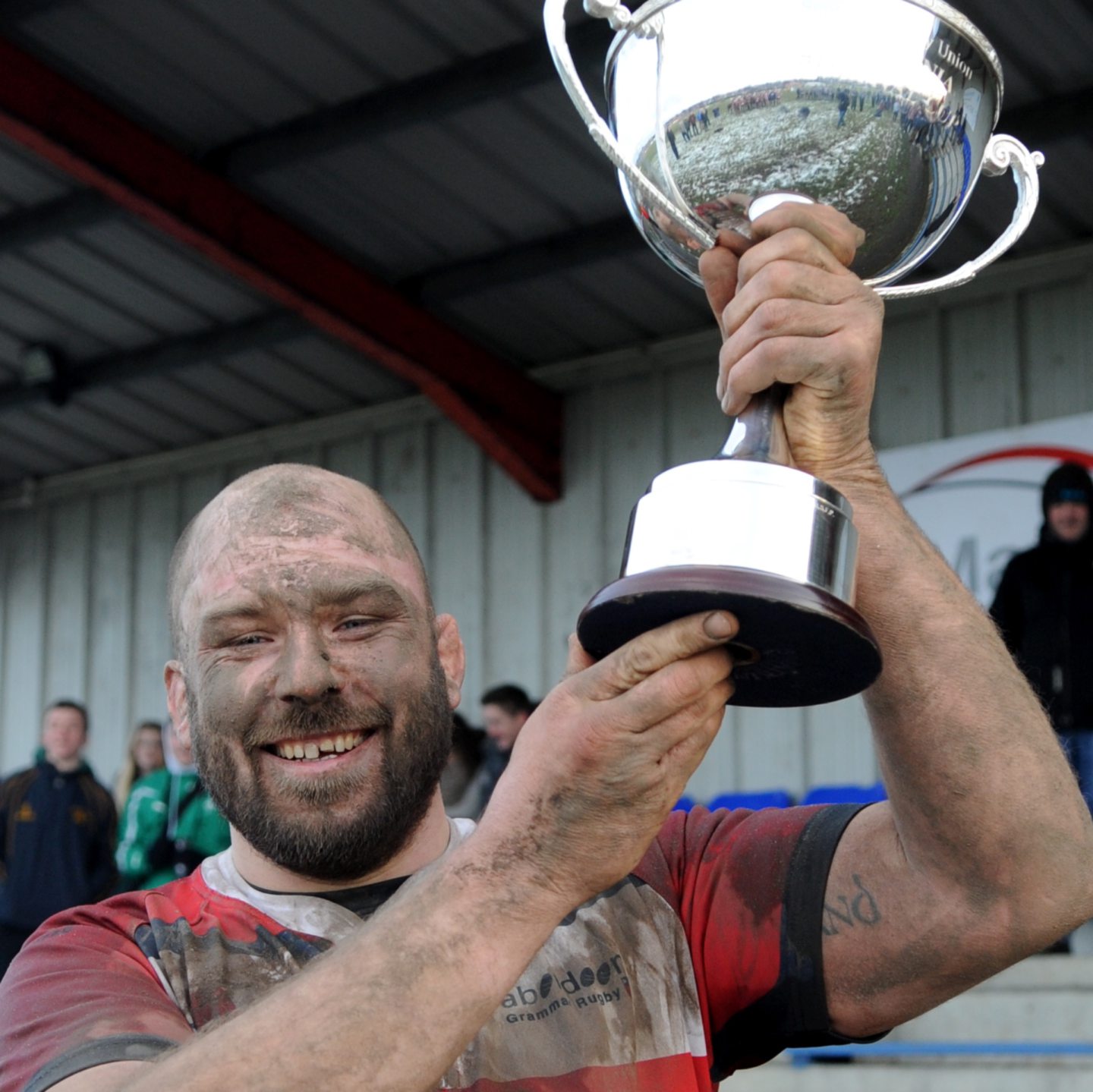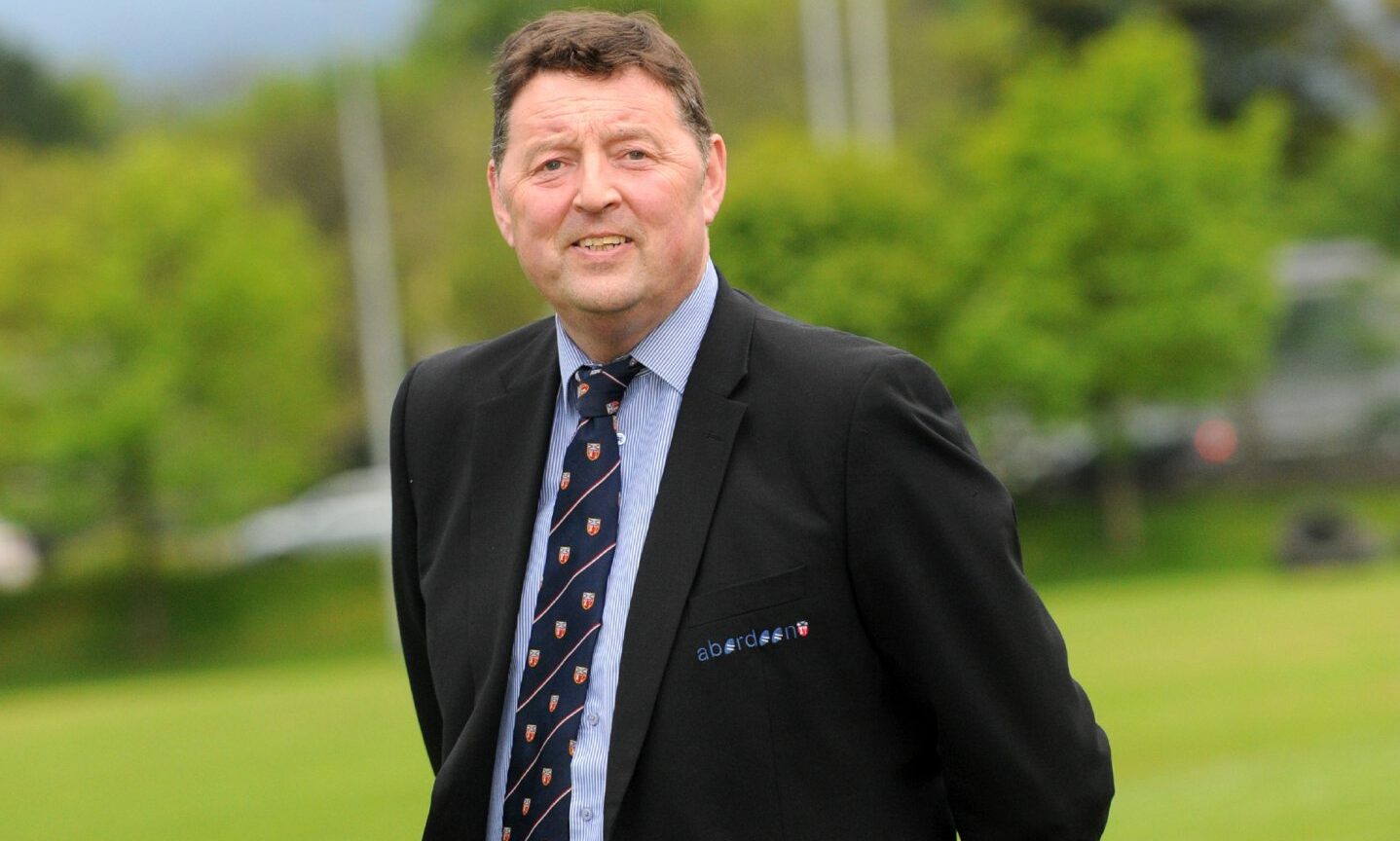Known to cause “punch drunk” syndrome, it was previously thought boxing was the only sport that could lead to the likes of brain damage and dementia.
With the Latin name dementia pugilistica (fist fighter’s dementia), it has been closely linked with repeated blows to the head and concussions.
In recent years growing numbers of footballers and rugby players, among other sportspeople, have opened up about such diagnoses.
While measures to limit rugby tackling and heading footballs have been implemented to keep people safe on the pitch, there are arguments the risks are still too great.
‘I couldn’t remember getting back to the changing room’
Former rugby professional Stuart Corsar, who played for the likes of Glasgow Warriors and Rotherham Titans, retired from the sport over concerns about concussion.
The 37-year-old, who also represented Scotland in some competitions, suffered a knock to the head during a match but, not wanting to “appear soft”, hid it from the medical team and wrote it off as a “dizzy spell”.
As his symptoms worsened, he suffered another hit while playing and staff intervened, forcing him to take a six-month break.
“I was constantly tired, emotional and was struggling with focus and concentration,” he said.
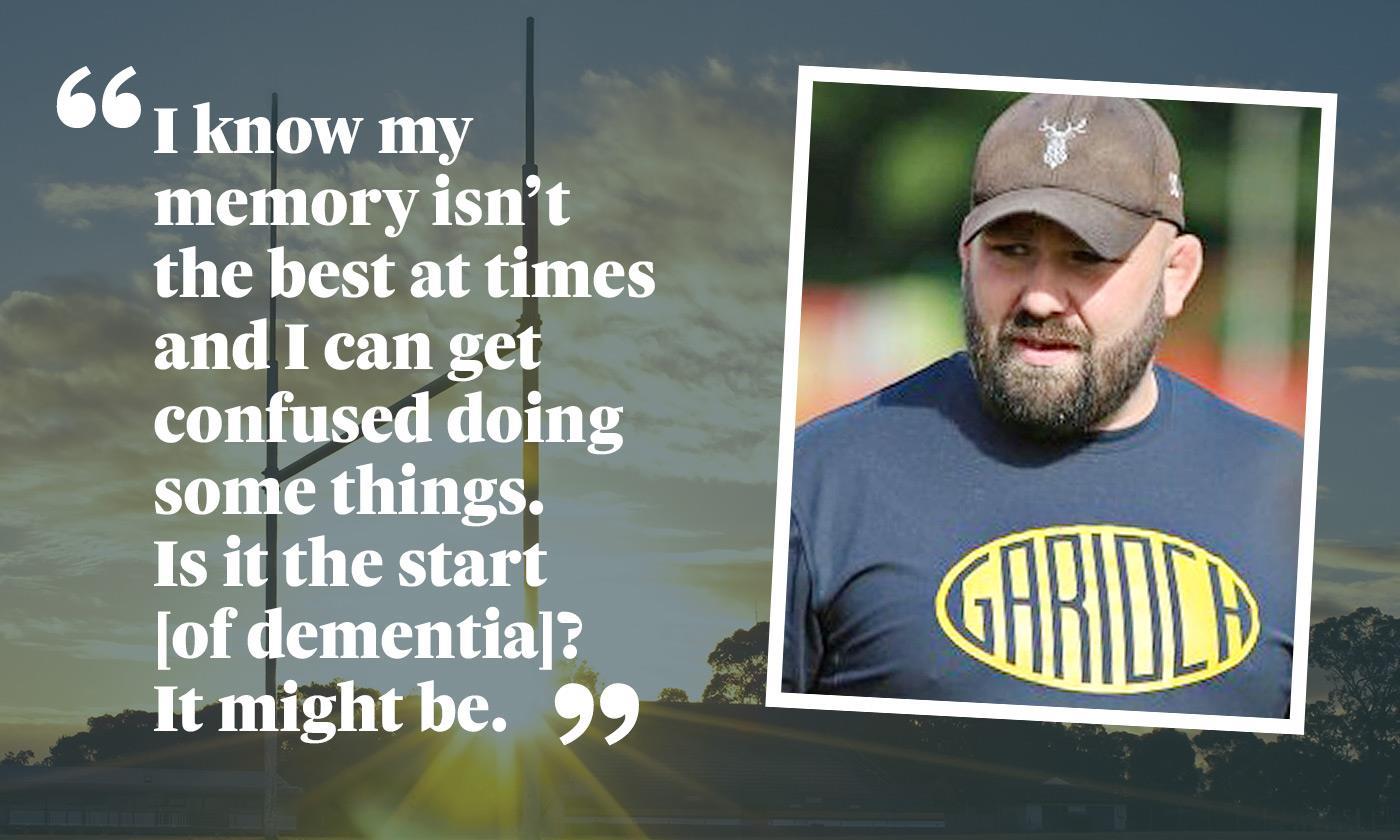
“At the time I never linked this with the head knock and ignored the advice from medical staff.
“The reason was silly, I was a full-time employee of the club and I did not want to let them down.”
When Stuart returned for preseason, he took the “smallest of knocks”, causing significant issues.
“I couldn’t remember getting back to the changing room, the trip home or a few days after, just what players told me.
“I suffered headaches, dizzy spells, was emotional and hated bright lights and noise.”
‘If I took one more blow to the head I could die.’
Afterwards, he received a jaw-dropping wake-up call.
“The real shocker came after seeing a specialist who I always remember had a big smile,” he said.
“I was thinking everything was going to be okay.
“He then went on to say if I took one more blow to the head I would either be fine, paralyzed or could die.”
Stuart has spoken out about fears his concussions could have increased his risks of dementia.
But he says no one was fully aware of the long-term risks and, despite them, he’d still let his children take part in the sport.
He said: “Contact sports give so much more to people than what the risks are.
“We can get concussed and we can get hurt.
“The difference now is that more people have knowledge what the long-term effect is and how we recover and look after our bodies and teammates.”
Can hitting my head cause dementia?
Stuart’s focus as a rugby coach is now ensuring others learn of the potential consequences of concussions, and how to keep players safe.
There are emerging scientific links between sport and brain injuries, with organisations like Alzheimer’s Research UK calling for additional funding to investigate them further.
“Do I worry about dementia? I really do, as I have seen it in my family,” Stuart added.
“I know my memory isn’t the best at times and I can get confused doing some things.
“Is it the start [of dementia]? It might be. But is rugby the sole cause of it? Probably not.
“My main point is, if I knew concussion could accelerate it, I would have been more honest with my team and looked after my body better.”
Concussions not just ‘a head injury thing’
While concussions are most commonly associated with blows to the head, all manner of other injuries can also contribute.
These are incidents where something causes temporary bruising or swelling on the brain.
Aberdeen Grammar Rugby’s chairman, Gordon Thomson, said: “You can suffer concussive injuries impacted around your breast bone area.
“It’s impact on the body or the body hitting the ground, shaking the brain.
“When people say ‘It’s a head injury thing’ it can be caused by a number of mechanisms and all of them need to be assessed properly.”
He stressed that it isn’t “up to the player” to decide if they are concussed or not, with the referee and medics having the final say.
And before they can return to the field, even for training, there are several protocols which must be followed.
“If we think a player is showing signs of repeated concussions we then suspend them from playing rugby and notify the union to prevent them from registering anyone else until we’ve had playoffs, had them neurologically assessed and scanned,” Gordon added.
Sport would have to stop ‘altogether’ to eliminate risks
He also warned that some of the measures in place to stop players coming to harm could be having the opposite effect.
This includes children playing rugby, who are often instructed to tackle below the waist.
“A lot of concussive injuries are actually caused to the player carrying out the tackle,” he explained.
“If their head connects with your knee, you’re more likely to get a severe injury from a knee then you are an arm or elbow.”
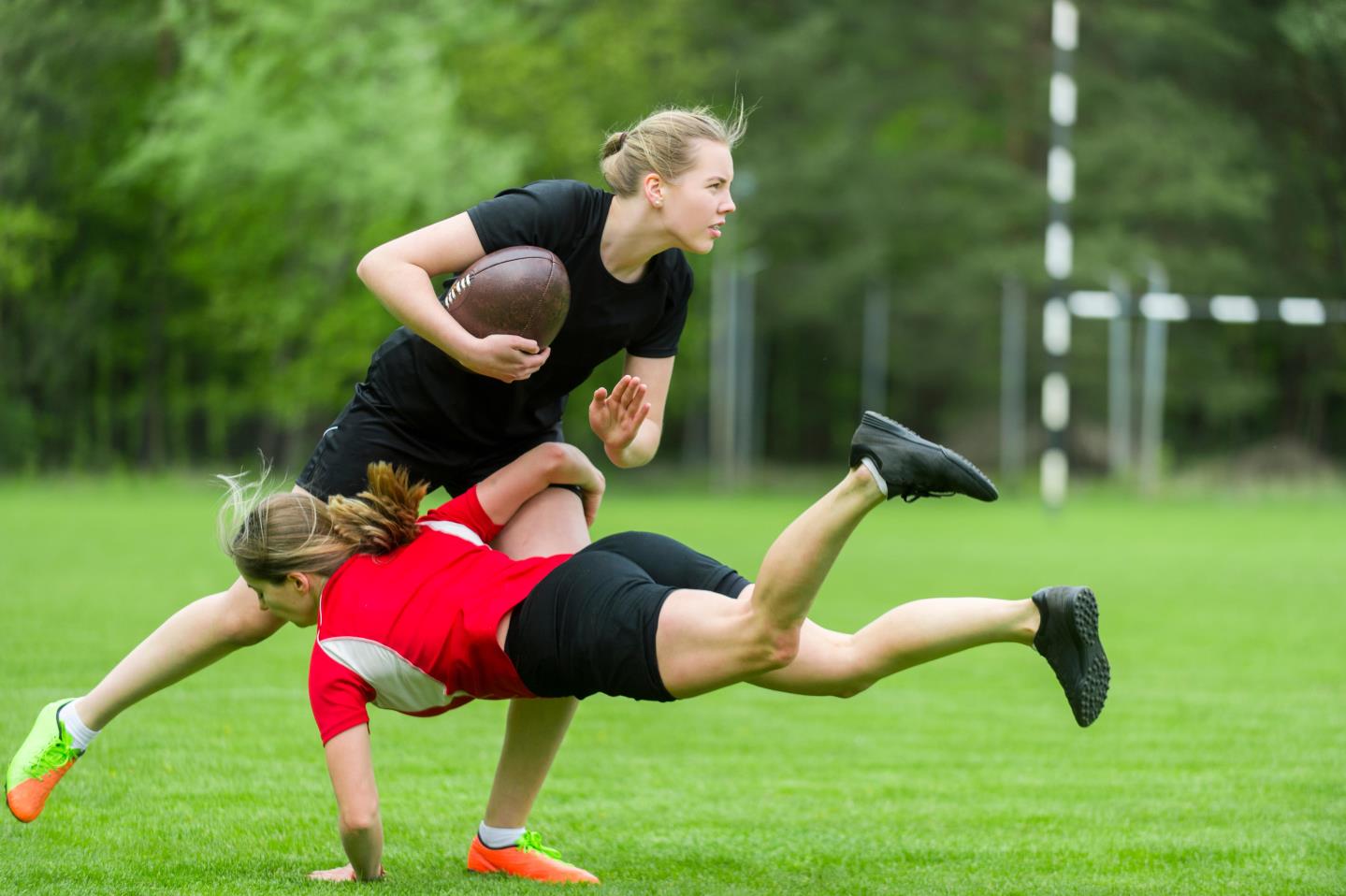
Additionally, there are separate risks emerging for women’s rugby.
“There’s a number of medical reports been published that indicates because of the different muscular and skeletal differences between men and women, women tend to suffer more severe concussive injuries.” Gordon added.
And although he feels sporting chiefs are doing “everything” possible to protect players, ultimately rugby is a contact sport that comes with a “risk factor.”
“You cannot avoid the risk of some form of injury because two people tackle each other and are both running,” he said.
“The risk factor is very small but I think, if you exclude that, you’d need to stop playing rugby union altogether.”
Rule changes for football
Rugby is not the only sport which has former professionals speaking out about dementia and brain injuries.
Earlier this year Aberdonian Denis Law, who played for Scotland and Manchester United, was diagnosed with mixed dementia.
The 81-year-old said he had no doubt it had been caused by the heavy leather footballs he used to play with.
“What else would it be?” he asked the Sunday Mail.
“You were heading the ball, which was quite heavy in those days, but you didn’t think about it. We just thought it was normal.
Last year the Scottish Football Association (SFA) banned under-12s from heading practice, and imposed restrictions on how often older children can.
Now, two Scottish universities are embarking upon a new project to fully examine the links between sport and brain-related illnesses.
Teams at Edinburgh and Glasgow are collaborating with football players’ trade union PFA Scotland on the Prevent Dementia study.
It is hoped they can address the potential changes in sports stars’ brain health, and look at potential treatments for their conditions.
Links still ‘inconclusive’
Overall, the connections between the two are still “inconclusive,” however.
The chief executive of charity Dementia UK, Dr Hilda Hayo, said: “We are aware of former contact sports players under 65 years of age who are receiving diagnoses of neurological conditions, including CTE and dementia.
“There is however inconclusive evidence around the link between playing sports and these conditions, particularly regarding the level and the type of impact to the head.
“It is important that if a former player, or their family, have concerns about progressive changes to memory, concentration, communication, personality, or behaviour they see their GP for an assessment and if necessary, they will be referred for a specialist assessment.”
